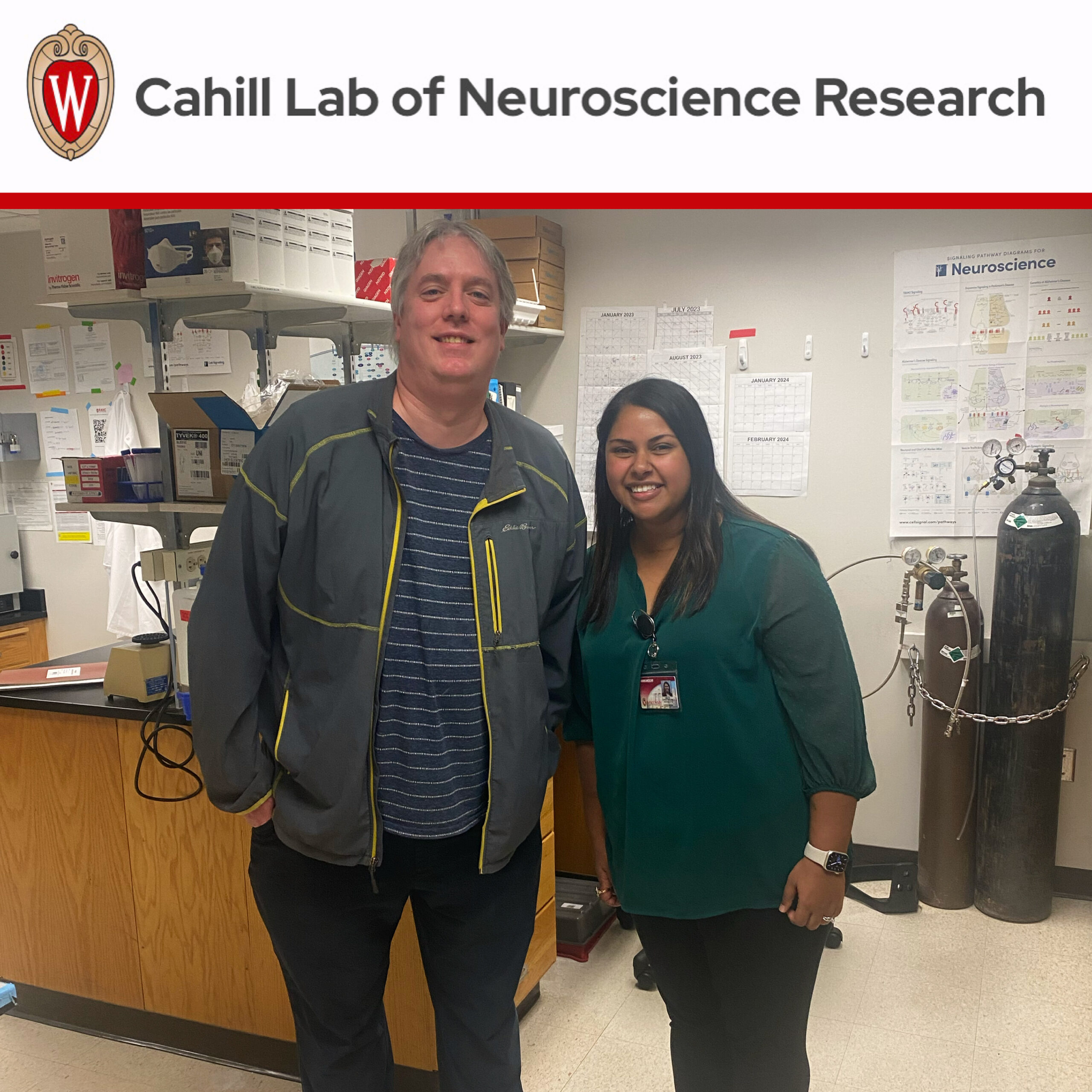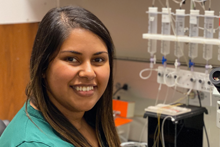Research
Philosophy
My research mission is to harness my expertise as both a neuroscientist and mental illness survivor with lived experience to further elucidate the underlying mechanisms of debilitating psychiatric conditions such as obsessive-compulsive disorder (OCD), post-traumatic stress disorder (PTSD), and more.
My ultimate research goal is to study & develop novel therapeutic targets for these disorders, with a particular interest in the mechanisms of action driving psychedelic & psychoplastogenic compounds. Above all, my hope is to help lessen unnecessary human suffering.
My first-hand, lived experiences of these mental illnesses equip me with unique perspectives & research questions to ultimately derive novel insights through my research pursuits.
To that end, embedded in all of my research endeavors is a deep commitment to mental health advocacy, science communication, and community outreach.
Furthermore, my work as a scientist stands for the active inclusion & representation of fellow mentally ill & disabled scientists in research. Through continued advocacy, allyship, & mentorship, I commit to further destigmatizing + normalizing the experience & disclosure of mental illness + disability survivorship within researchers like myself.
Read About Uma’s Research
The Neurobiology of OCD & Novel Therapeutic Compounds
Principal Investigator: Dr. Michael Cahill, Ph.D
Current Research
I am currently a Neuroscience Ph.D student at the University of Wisconsin-Madison in the Neuroscience Training Program! I’m conducting my thesis research in Dr. Michael Cahill’s lab, studying the underlying mechanisms of obsessive-compulsive disorder (OCD) & other cognition-driven neuropsychiatric disorders.
My Ph.D thesis goal, on a high level, is to further understand the pathophysiology of OCD through exploring dendritic spine abnormalities in postmortem brains from OCD patients, and then recapitulate these disease states in animal models to establish behavioral causality. I also strive to develop new behavioral assays to recapitulate the “obsession” aspect of OCD symptomology in animal models. Furthermore, I aim to utilize reverse-translational models to explore subsequent therapeutic targets & novel pharmacological compounds such as psychedelics & psychoplastogens.

The Potential Effects of MDMA-Assisted Therapy for PTSD on Comorbid OCD
Principal Investigator: Uma R. Chatterjee, M.S., MHPS (Independent Project)
This research project was inspired by my lived experience of comorbid OCD & PTSD – particularly the experience of OCD & PTSD treatments working inversely and being contraindicated for the other disorder. This phenomenon led to my curiosity about how comorbid OCD was being considered within the framework of MDMA-Assisted therapy for PTSD, and other psychedelic-assisted therapies for PTSD. This curiosity led to a fully-independent, multidisciplinary research investigation into this question with novel results + conclusions that have gone to inform clinical trials around the world.
I have presented this research project at numerous scientific conferences and research symposia around the world, and have received several accolades for my novel findings, including first place in the global PsychedelX 2022 conference competition and several presentation, research, and travel grant awards. The culmination of this project has resulted in a published abstract by the Society for Neuroscience and an accepted first-author manuscript for publication, currently in preparation with collaborators. Listen to the full story of how I turned my lived experience into a fully independent research project here.
Abstract: Post-traumatic stress disorder (PTSD) and obsessive-compulsive disorder (OCD) are often comorbid psychiatric disorders within patients. Approximately 40% of patients diagnosed with PTSD are also diagnosed with OCD, which far supersedes the estimated 1% rate of OCD prevalence in the general population. First-line psychotherapies differ for both conditions, where PTSD is generally treated with cognitive-behavioral therapy (CBT) and OCD is treated with exposure & response prevention therapy (ERP). These psychotherapies fundamentally differ in their execution, with traditional CBT being contraindicated for OCD treatment. Especially in cases where patients’ PTSD & OCD diagnoses present a dynamic functional relationship, the treatments for both conditions often result in both parallel and inverse results, such that PTSD treatment can often worsen OCD symptoms, and OCD treatment can also often worsen PTSD symptoms. Furthermore, patients with comorbid PTSD and OCD are shown to experience more severe symptomology of OCD than patients with just OCD.
Thus, when studying the potential of 3,4-Methylenedioxymethamphetamine Assisted Therapy (MDMA-AT) for PTSD, a notable point of consideration is the potential challenge of comorbid OCD in PTSD patient populations. This project reviews the current literature on the comorbid nature of dynamically-related PTSD & OCD diagnoses, current challenges in the psychological and pharmacological treatments of comorbid PTSD & OCD, and the potential pharmacological mechanisms of 3,4-Methylenedioxymethamphetamine that impact PTSD & OCD as individual and comorbid conditions. This project also evaluates the current paradigm of MDMA-AT for PTSD as it relates to comorbid OCD and assesses its potentially contraindicative effects. Additionally, this project provides several directions for further investigations into this topic across a wide range of relevant disciplines.
OCD & The Brain: The OCD Neurobiology Toolkit
Principal investigator: Dr. Tobias Hauser, Ph.D
OCD and The Brain is an inter-disciplinary engagement project that aims to co-produce an engaging and interactive online toolkit for young people living with OCD and their parents to learn more about the brain and OCD. The purpose of the project is to overcome the disconnect between what the latest OCD research is focusing on, and the needs and focus of the OCD community.
This toolkit focuses on the aspects that were within our scope and remit, which includes exploring current scientific understanding about OCD and the brain, research techniques used to explore OCD and the brain, and information about evidence-based treatments and how they might work in the brain.
On this project, I served as a scientific contributor and a community gatekeeper. I harnessed both of my identities as an OCD patient and neuroscientist to shape the project, provide accessible research information, co-produce the toolkit, and bridge conversations between the research team and lived experience communities.
The project is being delivered by The Department of Imaging Neuroscience, in partnership with OCD Action and International OCD Foundation (IOCDF), and people with lived experience of OCD. The project has been funded by Wellcome through a Wellcome Enrichment – Public Engagement Grant.



The Hemispheric Lateralization of the Central Amygdala in Chronic Bladder Pain
Principal Investigator: Dr. Benedict J. Kolber, Ph.D
Postdoctoral Mentor: Dr. Lakeisha Lewter, Ph.D
As a neuroscience master’s student, I joined Dr. Benedict Kolber’s Lab in the UT Dallas Department of Neuroscience’s Center for Advanced Pain Studies. I primarily studied the systems-, cellular-, and molecular-level properties of the central amygdala (CeA)’s hemispheric lateralization, and its subsequent role in modulating chronic bladder pain and comorbid psychiatric conditions.

Read through the numerous research projects I conducted and contributed to within the lab:
Investigating the role of hemispheric lateralization in PACAP (pituitary adenylate cyclase-activating polypeptide) release within the parabrachial nucleus (PBn) to the central nucleus of the amygdala (CeA) circuit, and its subsequent lateralized functions in interstitial cystitis (visceral/chronic bladder pain) and comorbid psychiatric & stress-related conditions. Utilizes: in vivo optogenetics, behavioral assays, in vivo pharmacological administration, viral vectors, stereotaxic surgery, noxious visceromotor response, immunohistochemistry, and in situ hybridization.
Investigating the progression of cyclophosphamide-induced interstitial cystitis (chronic bladder pain) across various time points/days post-injury, and its subsequent effects across various related domains, including: physiological measures of noxious visceromotor responses, histological analysis of bladder, behavioral assays, slice electrophysiology, CeA CGRP receptor activity (in situ hybridization), and CeA CGRP neuropeptide release (immunohistochemistry).
Quantifying cells in the central amygdala containing PKC Delta, Somatostatin, CGRP, & PACAP to create a 3D agent-based computational model to simulate the virtual brain to understand pain-induced behavior.
Piloting a protocol for the urinary bladder distention visceromotor response (UBD VMR) physiological assay in male mice through the novel development and troubleshooting of male catheterization & electrode implantation.
Identifying with Symptoms in COVID-19
Principal Investigators: Dr. Gayle Schwark, Ph.D & Dr. Meredith G. Grant, Ph.D
Abstract: This study examined the effects of using primers that normalize and contextualize depressive symptoms within the setting of the COVID-19 pandemic on subsequent rates of reporting experiencing depressive symptoms, relative to responses to questions lacking such primers. Data, collected through surveys using a within-subjects design where all participants were exposed to both conditions, was used from 126 participants from the University of Texas at Dallas. Results showed that when responding to questions using primed language that included prompts normalizing and contextualizing depressive symptoms within the COVID-19 pandemic (experimental group), participants reported experiencing depressive symptoms at a similar rate to when participants responded to questions about depressive symptoms that lacked such prompts (control group). Ultimately, there were no notable differences between the two groups. Theoretical and practical implications were discussed.



 using WordPress and
using WordPress and